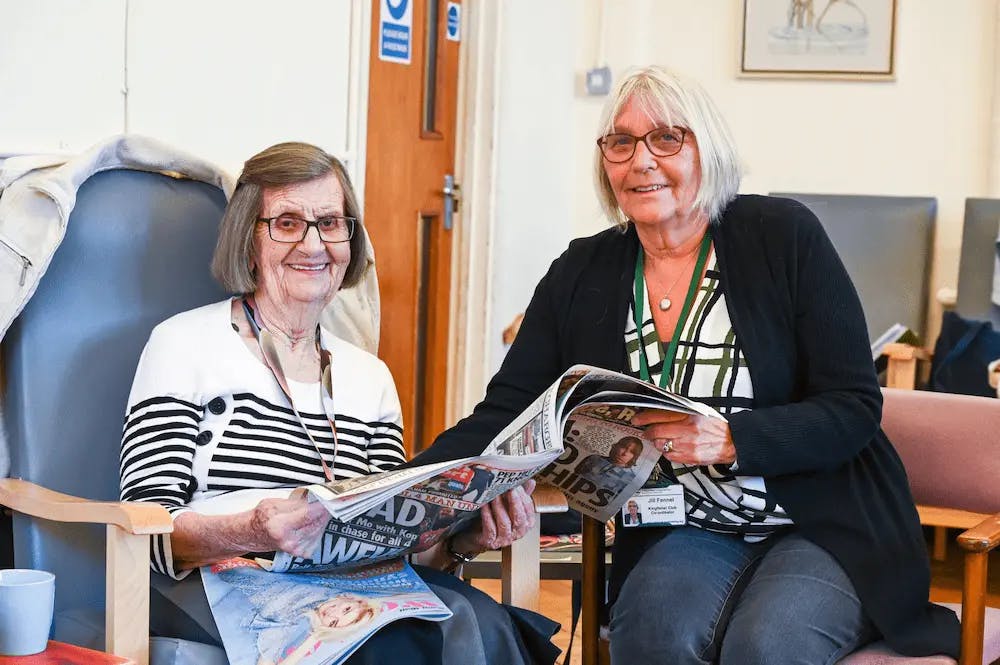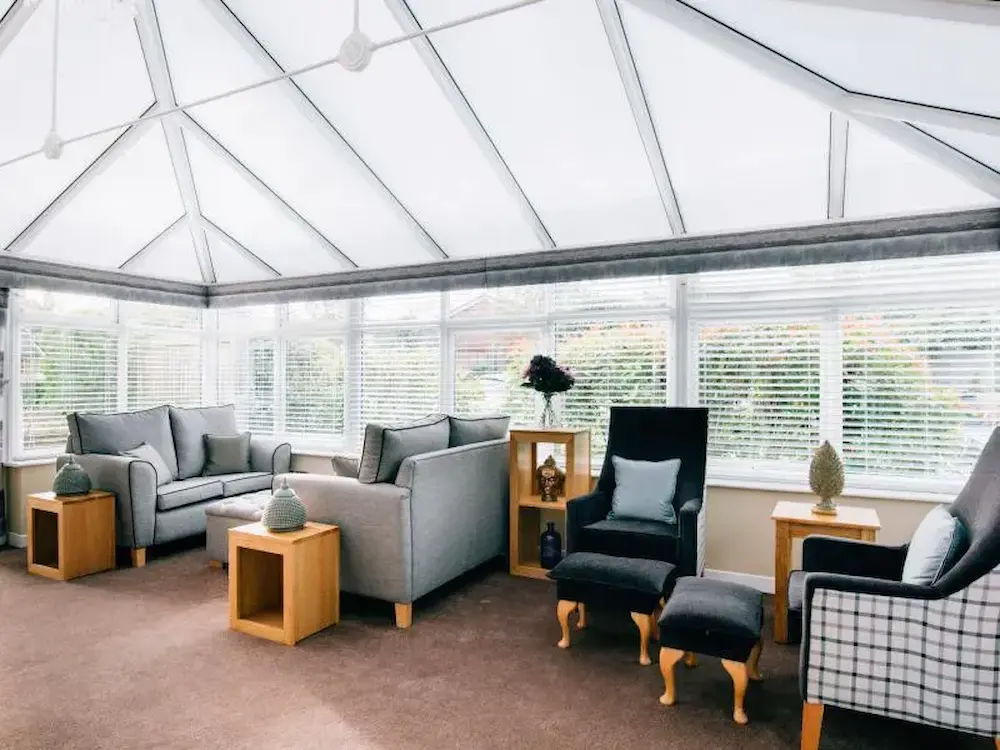What is Social Care and Who is it For?

Estimated Reading Time: 9 minutes
Social care ensures everyone who needs extra care is supported, including older adults and anyone living with a disability.
The social care sector can include different types of support, such as through personal care, social work and financial assistance.
In this article, we’ve explored this topic. We’ve looked at how it works, the different providers, whether you’re eligible and how to find an appropriate service for you or a loved one.
Arrange care at home
Browse the best home care in your area.
In this article on social care:
- What is social care?
- Types of social care?
- The role of a social care worker
- Social care providers
- Am I eligible for social care?
- Paying for social care services
- Who regulates the social care sector in the UK?
- How to complain about a service
- Why is social care important?
What Is Social Care?
Social care services are aimed at people who need some extra help navigating everyday life. This often includes older adults or people with a disability. Social care is also directed towards unpaid or informal carers who look after someone else and require some much-needed assistance to continue doing so.
In these instances, social care can offer support with:
- Practical activities
- Personal care
- Emotional support
- Helping you find the care you need
- Advocacy in health and social care
- Financial help
- Providing specialist equipment
- Support for carers
- Adapting homes to make them more accessible
Social care helps people live happier and more meaningful lives.
The 6 principles of care
The six C’s in health and social care are:
- Care
- Compassion
- Competence
- Communication
- Courage
- Commitment
These should be followed by people within the healthcare space (such as nurses in nursing homes).
Their main goal is to ensure people in care settings such as residential care homes are cared for with compassion. Staff providing care should promote independence and clearly communicate.
Types of Social Care
There are several different types. Depending on your individual needs, you may benefit from help around the home with chores like cleaning, gaining access to specialist equipment or full-time residential care.
Social care can be self-funded or paid for by your local council.
Below, we’ve looked at the two main types of social care in the UK and how each of these works.
Adult social care
This comprises several different care services within the UK, including:
- Residential care
- Personal care
- Day care
- Rehabilitation
Elderly care is included within this space, but there are also older-adult-specific facilities such as nursing homes (which are usually exclusively aimed at adults above a certain age e.g. 65+). Similarly, dementia care homes tend to have more older adults than people of other age groups.
Find local authority adult social care services.

Children’s social care
Local councils or authorities may need to provide certain services to young people who require them, including children who have a disability. These services could include:
- Home adaptations such as handrails or ramps to make day-to-day life easier (these can also be funded through a Disabled Facilities Grant)
- Providing equipment for enjoyment, including things like a TV, computer or laptop
- Providing a telephone or something similar for communication
- Providing travel - this could be to and from a day centre, or for leisure purposes
- Help at home through personal care, including hygiene-related tasks such as showering, bathing and getting dressed
- Holidays and short breaks (this holiday could include a carer taking a break through respite care)
- Other services such as advice and guidance, providing access to useful resources, help with day-to-day tasks and even financial support in some circumstances
We can help you find the best home carer for you or your loved one’s care needs, including domiciliary (hourly) and live-in carers. Request a free list of home care agencies, and our care experts will match you with suitable carers with availability in your local area.
The Role of a Social Care Worker
Social care support workers support individuals (including children and older adults) and their families. Often, they’ll be considered key figures within their community as a whole.
They’ll also provide services for people with physical and mental health problems.
They help people become more independent, feel more included in society and be more in control of their own lives.
You may find social workers in one of these settings:
- Community-based offices
- Residential care
- Adult day care
- A hospital
- A health centre
- A school
- A prison
The following skills are essential to be an amazing social worker:
- Patience and understanding
- Flexibility
- A tolerant and kind nature
- Being able to make often difficult and important decisions
- Being able to think clearly and analytically
Social Care Providers
In England, Scotland and Wales, local authorities provide certain care services.
In Northern Ireland, local health services are provided by the Health and Social Care Trust.
In general, there are four main kinds of care providers in the UK. Below, we’ve gone over each of these.
Care homes
These provide accommodation, personal care services and general support to older adults, as well as people who are no longer able to independently live in their own homes.
The degree of care offered, the type of care and the size will vary from home to home.
Popular options include residential homes and nursing homes.
Along with offering much-needed support, some care homes will also provide fun social activities such as baking or cooking, arts and crafts, exercise classes, card games and gardening.
Here are some of the care homes we’re partnered with that offer a variety of social care support services for residents:
Admiral Court Care Home in Southend-on-Sea
Mercia Grange Care Home in Sutton Coldfield
Shinfield View Care Home in Reading
Sherwood Grange Care Home in London
Harton Grange Care Home in South Shields
Acacia Lodge Care Home in Manchester
Lucerne House Care Home in Exeter

Assisted living facilities
This type of care home alternative is aimed at people who need some extra help in their day-to-day lives, but can still live independently for the most part. Assisted living enables people to lead fulfilling lives in later life.
The amount of care provided can be increased or decreased, depending on individual needs and requirements.
Types of assisted living and similar include sheltered housing and warden-controlled housing.
Community care
Here, people can continue living in their own homes while remaining as independent as possible.
Support is offered where needed, including through things like:
- Personal care tasks
- Help around the home (such as with cooking and cleaning)
- Providing transport to and from appointments
In some cases, home modifications can be made so people are able to continue living safely at home. These modifications may include stairlifts, hoists, ramps or handrails.
Community care is aimed at people with physical disabilities, learning difficulties or mental health issues.
Day care
This type of service is only provided during the day. At day care, assistance is provided for people with physical or emotional needs. This could include disabled individuals or people who require rehabilitation following an illness or accident.
At a day care centre, residents also benefit from plenty of socialisation, thanks to fun communal activities that are regularly organised. Meals are usually provided as well.
Am I Eligible for Social Care?
In England and Wales, you’re eligible for social care if:
- You’re 18+ in England or any age in Wales (separate care is available for people aged under 18)
- You normally live in the local authority’s area (where you’re applying for it)
- You meet the eligibility criteria
Eligibility criteria in England:
- You require care because of a particular health condition
- This prevents you from doing certain things
- Your wellbeing is being impacted
Eligibility criteria in Wales:
- You require care because of a particular health condition
- This prevents you from doing certain things
- You don’t have access to a carer, or to community support that can meet your needs
- Without help from your local council, you’re unlikely to achieve the outcome you’d like
Paying for Social Care Services
You might be eligible for local council funding towards the cost of your care. In England, this will be the case if your savings (or that of your loved one) are less than £23,250 (this is known as the upper capital limit).
You’ll want to get a care needs assessment to find out how much help you require. A financial assessment will then work out whether the council will pay towards your care. If the answer to this is yes, they might arrange it as well.
Who Regulates the Social Care Sector in the UK?
Depending on where you live in the UK, social care is regulated by a different body:
England - The Care Quality Commission (CQC) regulates all health and social care services in England. This includes any support provided in care homes, hospitals, ambulances and through home care
Scotland - The Care Inspectorate (CI)
Wales - Care Inspectorate Wales (CIW)
Northern Ireland - The Regulation and Quality Improvement Authority (RQIA)
How to Complain About a Service
You have the right to complain about an organisation you believe to have provided a poor standard of care.
Health and social care services must have a procedure in place for dealing with complaints.
One way to complain is by directly contacting the service provider. If your local council arranged or funded the care, you can instead complain through them. Another method is to complain through the CQC (or the equivalent organisation, depending on whereabouts you live in the UK).
Why Is Social Care Important?
Through social care, people can lead fulfilling lives. They’ll be encouraged to do things they wouldn’t normally be able to do - things most people take for granted.
Emotional and physical support helps people feel better and more confident. Otherwise, many people face feelings of isolation and struggle to feel confident in themselves.
Many people are only able to properly look after themselves with this form of support, often due to a lack of assistance and funding. Everyone should have access to basic needs, and people are less likely to feel neglected and ignored if these are being met.
We’re on a mission to support individuals and their loved ones throughout each stage of their later living journey. For more information, check out everything Lottie has to offer.




